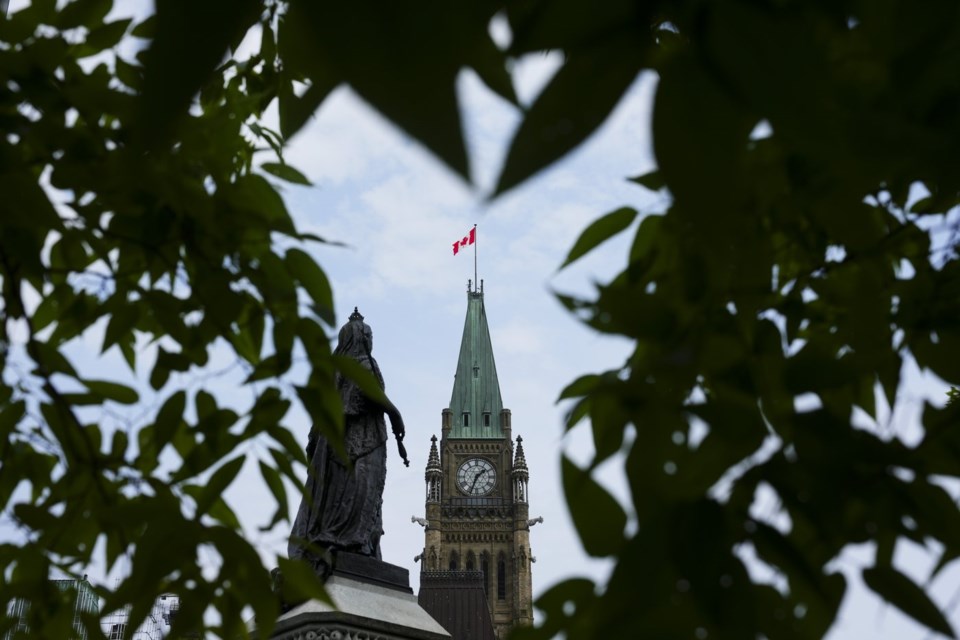OTTAWA — The Liberal government will slash the number of international student visas it processes by another 10 per cent, and a group representing Ontario colleges is warning that will lead to program cuts.
The government says the new target for 2025 and 2026 will be 437,000 permits. In 2024 the target was 485,000 permits.
Immigration Minister Marc Miller said on Wednesday the government expects the changes to "yield approximately 300,000 fewer study permits" over the next three years.
Colleges Ontario warned of chaos "both for international students who were excited to come here for a world-class education, and for the domestic students whose programs are now at risk."
Ottawa is also putting new limits on work permits for spouses of both foreign workers and students in master's degree programs. To qualify, the applicants' spouses have to be in a master's program of at least 16 months in duration, or foreign workers in management or professional occupations or working in sectors experiencing labour shortages.
Miller said the growth in international students and the corresponding postgraduate work and spousal permits are areas where "we owe it to Canadians, and in the context of an economy where the labour market in some areas is constricting, we need to adjust accordingly."
In January, the Liberal government announced a temporary cap to reduce the number of new student visas by more than a third this year.
Those changes came at a time when there was significant scrutiny of the international student program. Experts warned that strong population growth was putting pressure on an already-strained housing market.
Miller said the measures the government has taken until now are working, citing "more than anecdotal evidence that there has been an impact on certain rental markets where students are more prevalent."
He acknowledged it has been a turbulent year for universities and colleges, which want predictability, but said he expects them to adjust to the new rules.
"I've told post-secondary institutions several times that they need to adjust their recruitment practices," he said. "I have told them that the cost of acquisition of international students is certain to increase."
Universities Canada president Gabriel Miller said Wednesday's announcement "ripped the Band-Aid off" after months of uncertainty. He said the government has been making announcements in "dribs and drabs" about changes to specifics like the right of students to work in Canada.
"The government has given us clarity about what its objectives are going to be and what the rules governing the system will be. And that's going help dispel the cloud of uncertainty that's been hanging over international student recruitment and that's done so much damage to our international brand."
He also said the government's decision to include previously exempt graduate students in the cap "sends a message that Canada is uncertain about its commitment to aggressively recruiting those most talented students to come and work and study here."
Colleges Ontario president Marketa Evans called the announcement "deeply concerning" and said in a statement it shows a bias toward universities.
Evans said the federal government's restrictions mean colleges in the province are set to lose at least $1.7 billion in revenue over the next two years.
"Ontario's public college system cannot be cut off at the knees like this," Evans said.
"With declining international students, and the resulting budgetary crunch, colleges will have to reduce program offerings or cancel them altogether, which means domestic students won't have the chance to study in programs that are needed to address critical labour shortages."
Rahul Jayan, an international student from India, said the federal government's move will make it harder for others like him to seek an education in Canada.
"It will be very tough (for those) who are coming," the 22-year-old said on a Toronto college campus on Wednesday. "There are more people who dream to come to Canada."
Jayan said he knew people in India who would be directly affected by the news.
"It will be difficult," he said.
— With files from Nojoud Al Mallees in Ottawa and Rianna Lim in Toronto
Anja Karadeglija, The Canadian Press



